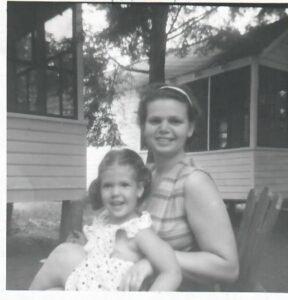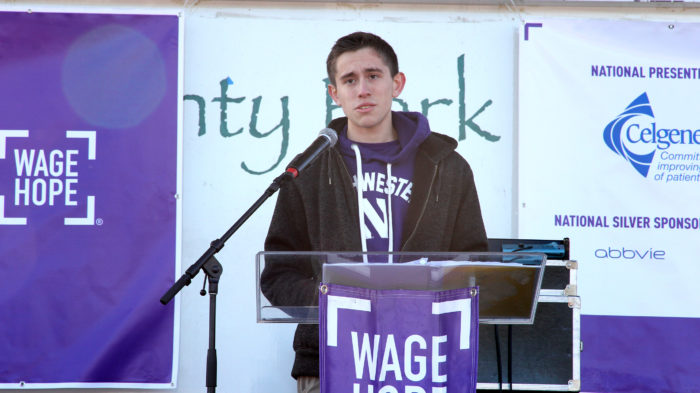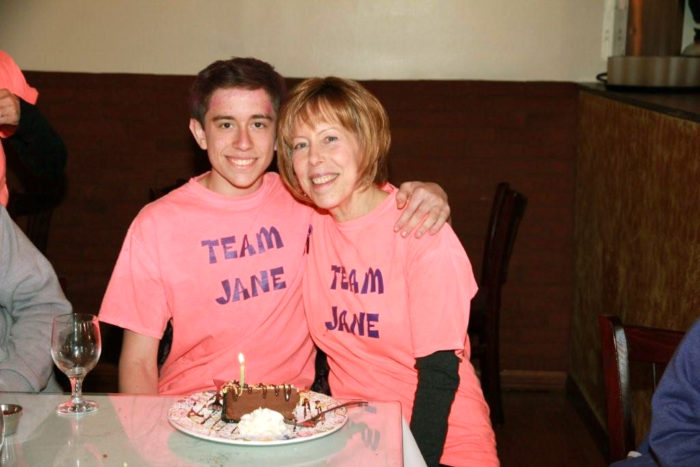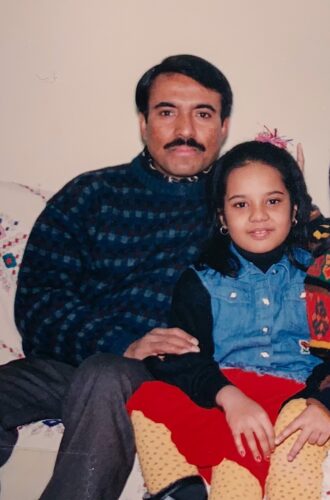
Efforts Geared Toward Goals of Earlier Detection and Better Survival Odds
Chappaqua resident Zabeen Mirza was in middle school when she first heard the words “pancreatic cancer”. It was a dramatic discovery–her healthy, active father, an anesthesiologist at Memorial Sloan Kettering, had suddenly keeled over in pain and was found lying on the floor. Less than six months later, and only 40 years old, he had succumbed to the devastating disease.
“It was awful–just incomprehensible to know that my father was literally surrounded by the best and the brightest minds in oncology–and they were all helpless, with no answers or treatment,” said Mirza. “We felt such powerlessness, despite all the brilliance and access we had. And there was nowhere to turn for support.”
Ironically, the same year her father passed away, 1999, was the year the Pancreatic Cancer Action Network (PanCAN) was established. With a vision to create a world in which all patients with pancreatic cancer will thrive, the organization focuses on improving the lives of everyone impacted by pancreatic cancer by advancing scientific research, building community, sharing knowledge, and advocating for patients.
“If PanCAN existed while we were going through this with my dad I can’t imagine how the trajectory of my life would be different,” said Mirza, who is now an Event Experience Chair for PanCAN’s annual Purple Stride event, which will be held virtually this April with a goal or raising $290,000. “This organization is truly a lifeline to those battling this unrelenting disease and their families, right from the point of diagnosis. Even if your loved one is no longer with you, PanCAN is there for support.”
A pancreatic cancer diagnosis is devastating, with limited treatment options and a five year survival rate of only 10 percent. There are no early detection tests, no effective long-term treatments and, unless the cancer is surgically removed in its earliest stages, no chance for cure.
The American Cancer Society’s estimates that, in 2021 alone, over 60,000 people will be diagnosed with pancreatic cancer, and nearly 50,000 will die of the disease. Accounting for about 3% of all cancers in the US and 7% of all cancer deaths, the biggest obstacles continue to be early detection and treatment.
Often referred to as a silent killer, symptoms are rarely noticeable in its early stages if they are present at all. They are often vague and can be easy to ignore, making it a challenge to recognize and diagnose. The pancreas is located deep in the abdomen, so tumors are rarely felt or found during a physical exam. Doctors may use a barrage of generalized tests to make a diagnosis but there is STILL no standard test to specifically diagnose pancreatic cancer, complicating matters even more. It is often diagnosed at an advanced stage because its symptoms (back or stomach pain, bloating, gas, new-onset diabetes) mimic other conditions. Some people carry genetic mutations, including BRCA, that put them at higher risk of developing this disease. There are also some lifestyle risk factors, such as smoking and obesity.
For Rye resident Tara Shanes-Knebel, it took many months, countless hospital stays, and a litany of frustrating tests to reach her mother’s diagnosis in 2008.
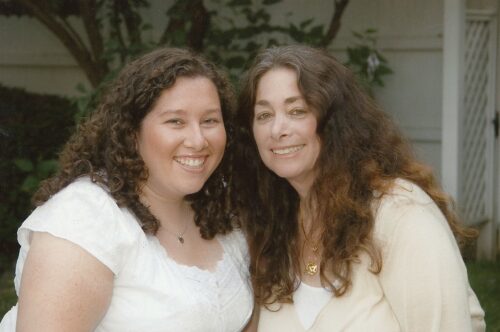
“While pancreatic cancer has some common risk factors, my mom did not have ANY–no family history of the disease, she did not smoke, she did not drink, and was a vegetarian- pancreatic cancer was a total shock to our family,” she says.
Like many, her mother’s symptoms were not obvious and developed over time–abdominal pain, loss of appetite, unexplained weight loss, change in stool, and jaundice. By the time she was diagnosed, and after a formidable battle, she died just 11 months later at age 51.
“I was only 25 years old when my mom was taken away from me by pancreatic cancer. She was an amazing mom, wife, friend, daughter, and dedicated her life to helping others. She was taken from us too soon,” she says. Fueled by her mother’s drive and devotion, she continues her fight. “The night before my mom died, she told me she was going to ‘bring a victory flag to Washington, D.C.’ by fighting and surviving this horrible disease. I am now dedicated, in her memory, to awareness and advocacy for pancreatic cancer, as well fundraising to advance research and patient support to help others.”
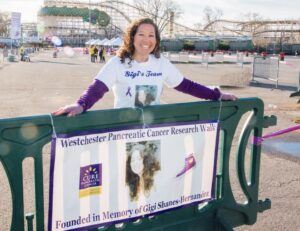
To honor her mother, Shanes-Knebel created and organized the Westchester Pancreatic Cancer Research Walk in 2010, and the annual walk continues today. She partnered with the Lustgarten Foundation, the world’s largest private funder of pancreatic cancer research. Since its inception, the event has raised over $4,000,000 in Westchester alone for pancreatic cancer research.
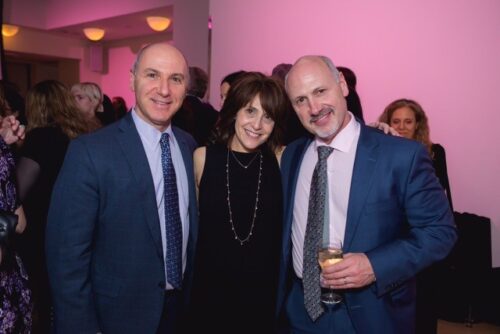
(L-R) Mike Greenstein, Jackie Greenstein, Rob Greenstein
The Lustgarten Foundation is also affiliated with Let’s Win! Pancreatic Cancer which helps educate patients about treatment options and provides hope for patients and families. This particular organization is close to the heart of Rob Greenstein, a Chappaqua resident who lost his sister Jackie to Stage IV pancreatic cancer last year. She was only 56 years old.
“Let’s Win! was co-founded by Jackie’s oncologist Dr. Allyson Ocean with a goal to get the latest science to doctors and patients in real time,” says Greenstein. “Pancreatic cancer that is diagnosed earlier is more treatable, so there is research focused on earlier detection, through blood tests, or monitoring of people that carry the genetic mutations or have a family history of the disease. There are clinical trials becoming more and more available–patients should not be afraid to get second opinions and look for trials that may help them.”
Currently, radiation and chemotherapy are used to prolong life, but low quality of life and high morbidity rates show that there is so much more to do. Research has made small but important gains in recent years, drawing more attention, and subsequently more funding with high profile cases such as Alex Trebek and Ruth Bader Ginsburg.
Advances such as immunotherapy, blood tests for early detection, genetic testing and molecular profiling of tumors and a slightly increased survival rate give families, patients, doctors and researchers hope. Funding alone has increased by over 900% in the past 10 years.
“Things are getting better, but the statistics are still grim,” says Mirza. “At PanCAN we often say we ‘wage hope’. This hope needs to be continuously kindled until we have beaten this deadly disease.”
UNDERSTAND YOUR DIAGNOSIS. ASK YOUR DOCTOR:
- What type of pancreatic cancer do I have?
- What tests and scans will you use to confirm a pancreatic cancer diagnosis?
- Where in the pancreas is it located?
- What is the stage?
- Has it spread to other organs?
- What treatments do you recommend? What choices do I have?
- How many people with pancreatic cancer do you diagnose each year?
- Can my tumor be removed through surgery? Why or why not?
- Should my family and I be tested for hereditary pancreatic cancer?
GET A SECOND OPINION:
Always ask for a copy of your medical records and lab results, including:
- CT scan
- CA 19-9
- MRI
- EUS
- ERCP
- Biopsy results
RESOURCES:
Let’s Win! Pancreatic Cancer: letswinpc.org
Lustgarten Foundation: lustgarten.org
PanCAN: pancan.org
American Cancer Society: cancer.org
